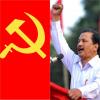TM: "Sri Lanka Struggles to Solve the Islamic State-Local Network Puzzle"
On August 23, the Sri Lankan government ended a four-month-long state of emergency that was declared after multiple suicide bombings inspired by the Islamic State (IS) rocked the South Asian nation (Colombo Page, August 23). Over 250 people died and scores were injured when on April 21, Easter Sunday, suicide bombers targeted popular hotels and churches in the capital city of Colombo, Dehiwala, Negombo (on the East Coast), and Batticoloa (on the West Coast).




